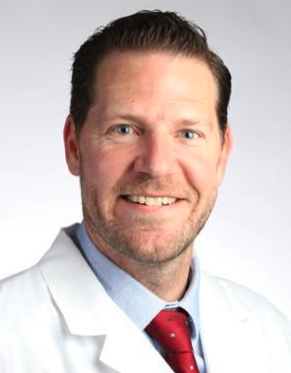e-SPACE Heart Failure 2023
Published: 25 October 2023
-
Views:
 3135
3135
-
Likes:
 7
7
-
Views:
 3135
3135
-
Likes:
 7
7
-
 Up Next
Up Next -
 1h 8m 32sPart 1 | Session 3 Plenary session 2 – GDMT in the clinical setting
1h 8m 32sPart 1 | Session 3 Plenary session 2 – GDMT in the clinical setting -
 51m 41sPart 1 | Session 4 Special Live Interactive Session – Management of ATTR-CM
51m 41sPart 1 | Session 4 Special Live Interactive Session – Management of ATTR-CM -
 44m 4s
44m 4s -
 57m 43sPart 1 | Session 6 Plenary session 3 – SGLT2i in clinical practice
57m 43sPart 1 | Session 6 Plenary session 3 – SGLT2i in clinical practice -
 40m 4s
40m 4s -
 1h 1m 49sPart 1 | Session 8 Plenary session 4 – Obesity and weight management in HF
1h 1m 49sPart 1 | Session 8 Plenary session 4 – Obesity and weight management in HF -
 50m 39s
50m 39s -
 56m 50sPart 1 | Session 10 Plenary session 5 – Worsening and acute heart failure
56m 50sPart 1 | Session 10 Plenary session 5 – Worsening and acute heart failure
-
 36m 3s
36m 3s -
 1h 1m 56sPart 2 | Session 2 Plenary session 6 – Iron deficiency: the totality of evidence
1h 1m 56sPart 2 | Session 2 Plenary session 6 – Iron deficiency: the totality of evidence -
 25m 15s
25m 15s -
 59m 4sPart 2 | Session 4 Plenary session 7 – Managing comorbidities in HF
59m 4sPart 2 | Session 4 Plenary session 7 – Managing comorbidities in HF -
 1h 46sPart 2 | Session 5 Plenary session 8 – Devices in HF: time to reassess their place?
1h 46sPart 2 | Session 5 Plenary session 8 – Devices in HF: time to reassess their place? -
 44m 24s
44m 24s -
 1h 1m 52sPart 2 | Session 7 Plenary session 9 – New technologies for HF management
1h 1m 52sPart 2 | Session 7 Plenary session 9 – New technologies for HF management -
 1h 2m 8sPart 2 | Session 8 Plenary session 10 – Special Populations
1h 2m 8sPart 2 | Session 8 Plenary session 10 – Special Populations
-
 1h 54sPart 1 | Session 1 Plenary session 1 – Recent guideline updates in HF Ahmed Bennis, Frieder Braunschweig, Marco Metra, Alicia Chan, Ovidiu Chioncel, Stefan Anker
1h 54sPart 1 | Session 1 Plenary session 1 – Recent guideline updates in HF Ahmed Bennis, Frieder Braunschweig, Marco Metra, Alicia Chan, Ovidiu Chioncel, Stefan Anker
Overview
Translational Medicine Academy (TMA) in partnership with Radcliffe Cardiology were delighted to announce the return of e-SPACE Heart Failure 2023.
A thoughtfully curated programme supported the exploration of how leading experts are implementing the new heart failure guidelines into clinical practice and showed the latest information on patient profiling in heart failure for tailoring medical therapy.
This event once again brought together TMA’s mandate for the delivery of continuing professional development to healthcare professionals to achieve concordance with appropriate treatment plans, with Radcliffe Cardiology’s goal to deliver cardiovascular knowledge to best support cardiovascular communities transform theory into practice.

Learning Objectives
- Review the burden of heart failure with reduced ejection fraction (HFrEF) and heart failure with preserved ejection fraction (HFpEF) as one of the leading causes of disability and mortality worldwide
- Understand the latest guideline recommendations and discuss their applicability according to patients phenotypes
- Discuss the implementation in clinical practice of the four foundational therapies and additional drugs and devices to improve patient outcomes
- Develop a comprehensive understanding of best practices for the screening, diagnosis and management of the patient with heart failure and comorbidities
- Translate the findings of recent studies and guidelines into optimal patient management
Target Audience
- Heart Failure Specialists
- General Cardiologists
- General Practitioners (GPs)
- Nurses, Pharmacists, and other Allied Healthcare Professionals
More from this programme
Part 1
Day One
Part 2
Day Two
Faculty Biographies

Patricia Campbell
Consultant Cardiologist
Dr Patricia Campbell is a Consultant Cardiologist at Craigavon Area hospital, Portadown, UK.
Dr Campbell's published research focuses on HF hemodynamics, the right heart in HF and optimal clinical pathways for HF patients.

Paul Kalra
Professor
Prof Paul Kalra is Professor of Cardiology at Portsmouth Hospitals NHS Trust, UK. The majority of his work involves assessment, investigation and management of patients with known or suspected cardiac problems. While he has a broad interest in all aspects of general adult cardiology, his sub-specialty interest is the assessment and management of patients with heart failure. Prof Kalra has championed local heart failure service development and co-developed the local complex device service, initiating implantable cardioverter defibrillator (ICD) and cardiac resynchronisation therapy device (CRT) implantation and follow up. He has extensive experience in assessment of patients for consideration of and the implantation of pacemakers and complex devices (CRT and ICD).
Elected Chair of the British Society for Heart Failure (BSH) 2017-2019. In 2019 the Pumping Marvellous Foundation, presented Prof Kalra with the Platinum patient educator award – recognising…

Robert Mentz
Cardiologist
Dr Robert Mentz is a Cardiologist and Associate Professor of Medicine at Duke University, Durham, US.
He has a clinical and research interest in heart failure, including advanced therapies such as cardiac transplantation and mechanical assist devices or heart pumps.






Comments